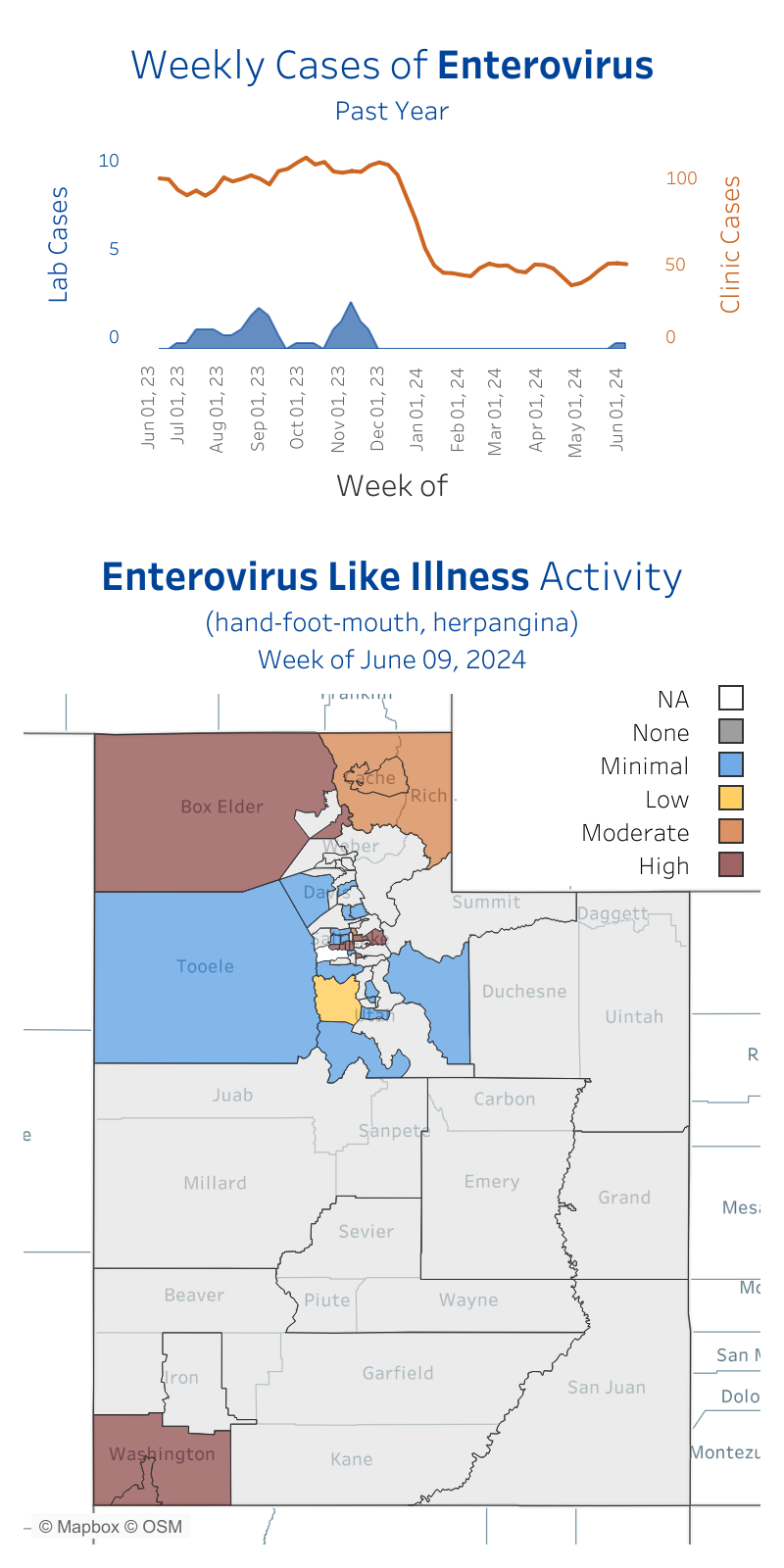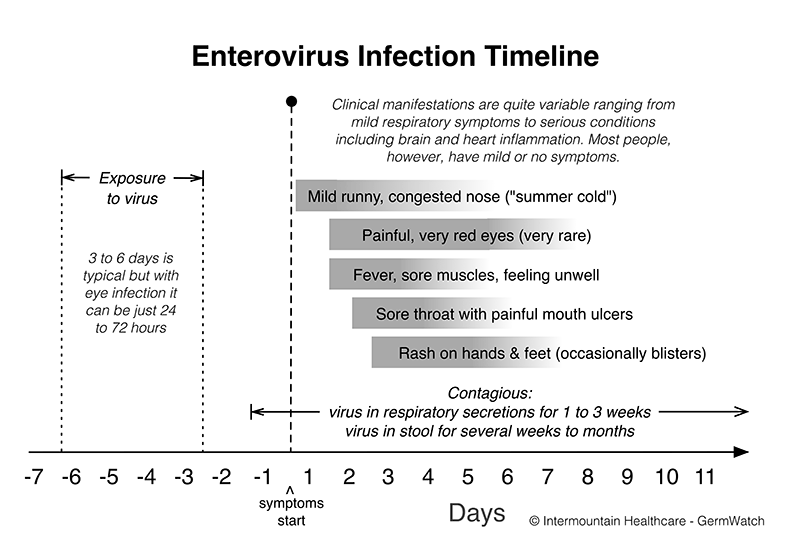Germ Profile
Also Known As: Coxsackie virus; hand-foot-mouth, herpangina
Germ Type: Virus
Season: Summer, fall
Enterovirus includes several groups of viruses that mainly affect younger children. Outbreaks of enterovirus are common in daycares, schools, and camps. Hand, foot, and mouth disease – one of the
viruses in the coxsackie group – is an especially frequent visitor to group settings. It typically brings symptoms such as fever, headache, sores (in the throat and mouth) and rash (on the hands, feet,
and diaper area).
Seasonality
In Utah, enteroviruses are most active in summer and early fall (June to October).

Signs and Symptoms
Symptoms from enterovirus infection vary widely and depend on the specific virus. Those most commonly seen in children include fever and flu-like symptoms (aches and chills), mouth sores, stomach pain,
rash, and headaches. Most cases resolve without problems, but some children (particularly babies) develop serious problems.
Infection Period
Symptoms of enterovirus virus infection typically develop between 3 and 6 days, except for acute hemorrhagic conjunctivitis, in which the incubation period is 24 to 72 hours.

How It's Spread
Because enteroviruses are primarily spread by the oral-fecal route, young children – whose post-potty hygiene is usually NOT perfect – are the most efficient transmitters. Other sources of
transmission include contaminated food and water, coughs and sneezes, even surfaces and objects that have been touched by someone with the virus.
Diagnosis and Treatment
Although a laboratory test can detect enterovirus, most diagnoses are made on the basis of symptoms.
Treatment for enterovirus means managing the symptoms until the infection clears. (There’s no commonly used treatment that acts on this group of viruses.)
What can I do today?
1) Practice prevention and stop the spread:
- Wash your hands often and well, and have children do the same.
- Give special attention to handwashing after bathroom breaks and before meals.
- Regularly wipe down tables, toys, and other objects and surfaces.
- Cover your sneezes and coughs.
- Use a tissue once, then throw it away and wash your hands.
2) Call your child’s doctor if you notice:
- Stiff or sore neck.
- Chest pain.
- Very low energy.
- Signs of dehydration (dry mouth and eyes, little urine, low energy), which can happen if mouth sore make swallowing difficult.
- Fast breathing (more than 40 times a minute) or very difficult breathing (retractions, or using the stomach muscles when breathing).
- Fever higher than 100.2°F in an infant 3 months or younger Fever lasting longer than 3 days.
- Any severe symptoms or symptoms that last longer than 7 days.
Disclaimer: The contents of this website are not intended to be a substitute for professional medical advice, diagnosis, or treatment.